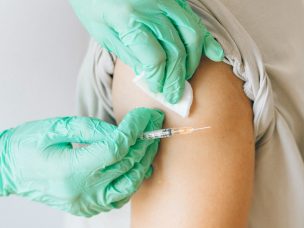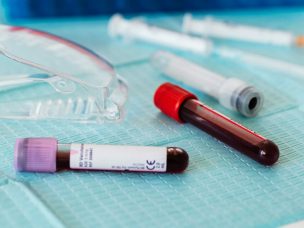March 3, 2023
AHA News: US-Born Hispanic People May Be More Vulnerable to Chronic Diseases Than Foreign-Born Counterparts
Hispanic people born in the United States may be at higher risk for multiple chronic diseases than their peers born in other countries, new research suggests. Compared to first-generation Hispanic people born elsewhere, those born in the U.S. showed an unfavorable blood cardiometabolic profile associated with obesity, diabetes, chronic kidney disease and asthma, according to...
Social Anxiety: What It Is, Symptoms, Treatments & More
Have you ever been in a social situation where you felt nervous? Maybe starting a new job caused you to sweat a lot on your first day. Or going to a party where you didn’t know anyone gave you a nervous stomach. These are normal feelings that most people experience at different times in their...
Dozens of Medical Groups Launch Effort to Battle Health Misinformation
Key Takeaways A new coalition of medical groups plans to counter health misinformation Composed of 50 groups from across the country, members will tackle the spread of fake health news, particularly in social media Coalition funders also plan to form partnerships with high schools, in an effort to educate future patients on health matters Alarmed...
Self-Stigma and Problematic Internet Use in Adolescents With ADHD
ADHD has been correlated with problematic internet use, which can result in distressing self-stigma. This study analyzed this relationship while stratifying for different types of problematic internet use and their unique effects. A number of published studies have shown a link between problematic internet use and psychological stress. Youth with attention deficit hyperactivity disorder (ADHD)...
Alopecia Areata After COVID-19 Infection and Vaccination
Rarely, some individuals may develop symptoms of alopecia areata following COVID-19 infection or vaccination, which are associated with pro-inflammatory cytokines that are also implicated in the pathogenesis of alopecia areata. Alopecia areata (AA) concerns have emerged following COVID-19 vaccination and infection. This cross-sectional analysis evaluated the relationship between COVID-19 infection or vaccination and AA. The...
Association of Alopecia-Related Emotional Symptoms With Daily Activity and Work Productivity
Alopecia areata patients reported significantly increased daily activity impairment and work productivity loss, which correlated to worsening emotional symptoms. Individuals suffering from alopecia areata (AA) tend to experience significant psychological and emotional distress that affects their work productivity and quality of life. This study demonstrated that emotional symptoms related to AA correlate with increased activity...
Oxidative Stress, Biomarkers, and Potential Therapeutic Approaches in Alopecia Areata
Oxidative stress and associated biomarkers are potentially implicated in the pathogenesis of alopecia areata. Novel therapeutic approaches may target these mechanisms for the efficient treatment of alopecia areata. Alopecia areata (AA) can be referred to as a form of non-scarring hair loss. Oxidative stress (OS) plays a potential role in an imbalanced redox state in...
Efficacy and Safety of Janus Kinase Inhibitors in Alopecia Areata
A recent meta-review determined that Janus kinase inhibitors, including baricitinib and deuruxolitinib, may be effective for treating alopecia areata, with treatment response being determined by dosage. Cytokines implicated in the pathogenesis of alopecia areata (AA) function via activating Janus kinase signaling pathways, which induces phosphorylation of signal transducer molecules and activates transcription (STAT) molecules. The...
Tocilizumab in Neuromyelitis Optica Spectrum Disorders
Tocilizumab is considered safe and effective for neuromyelitis optica spectrum disorder patients who do not respond to other immunosuppressants. Neuromyelitis optica spectrum disorder (NMOSD) is described as an immune-mediated inflammatory disorder that involves the B lymphocytes, astrocytes, anti-aquaporin 4 (anti-AQP4) antibodies, and inflammatory mediators in the central nervous system. This observational study, published in the...








